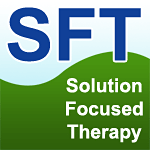Welcome to
Scotland's Premier Therapy and Holistic Personal Development Site
'Therapeutic care
& Personal Development - The solution to your problems is in
you'
 Cognitive
Behavioural Training / Therapy / Coaching Cognitive
Behavioural Training / Therapy / Coaching
All our therapy services are available at our City Centre bases in
Edinburgh and Glasgow and we are
considering expanding into other cities shortly.
We have two fully qualified
therapists on
staff, and a network of trusted colleagues around the UK we refer to.
We are complementary health
practitioners,
not alternative health practitioners. This means that we work WITH the
medical profession. If you have an illness or injury, or if you are
going to embark on a new diet, fitness plan or if you have any
uninvestigated symptoms, you must consult your medical doctor.
We are complementary health
practitioners,
not alternative health practitioners. This means that we work WITH the
medical profession. If you have an illness or injury, or if you are
going to embark on a new diet, fitness plan or if you have any
uninvestigated symptoms, you must consult your medical doctor.
Stuart and Denise are Life Coaches
and Solution Focused Holistic Therapists who also have qualifications
at levels 3 and 4 in Psychotherapy and Counselling. Having
completed this professional training guides and informs practice,
although implementation remains coaching, empowerment and solution
focused. Denise is a CCC registered counsellor, Stuart is a NCP and
NACHP registered psychotherapist and counsellor.
We adhere to
appropriate National Occupational Standards, carry
professional insurance and support regulation of
therapists. We
support the coming voluntary regulation of psychotherapy and
counselling. Stuart is a CNHC registered hypnotherapist (voluntary
regulation of hypnotherapy).
Naturally analytical and listening
skills from psychotherapy and counselling are often used in coaching,
personal training, NLP, hypnotherapy and generally in holistic and
complementary therapies.
Solution focused therapy is results
and outcome based, but is often guided by theory and thinking from
subjects including Eastern Medicine, Philosophy, Theology, Social
Policy, Health Education and Psychology. Stuart and Denise have
completed a range of training courses and qualification courses in
these topics and are committed to further University study of these
topics in order to inform and develop professional practice.
Cognitive
Behavioural Therapy / Training / Coaching
Cognitive
Behavioural Therapy / Training, or CBT / CBC as it is usually known, is
a special form of Psychological therapy. Like Life Coaching, personal
development training or NLP, it is often provided in a training format.
Therefore some practitioners may consider themselves "clinical
counsellors" who provide CBT, others may prefer to consider themselves
"trainers" who empower their clients while still working through deeper
issues.
This
web page is not meant to give an in depth or technical
description, but instead a basic idea for the layperson considering CBT
/ CBC.
Cognitive
Behaviour Therapy is a very practical form of therapy.
Like Life Coaching it aims to make discernible changes in a client's
behaviour
and lifestyle in order to help them.
CBT
is widely recognised as a scientifically tested and verified
psychotherapeutical method of overcoming common emotional
problems.
With
CBT you identify errors in the way you may be thinking or
perceiving things, and from there learning to adopt more helpful
thoughts,
attitudes, philosophies and beliefs.
Cognitive:
In
lay-mans
terms this is our perception and identification of things around us. We
may have faulty perception for a number of reasons. This may for
example be due to obsession or trauma colouring the way we see things.
Behaviour
This
is simply
the way be act, behave and react to what we have already noticed going
on around us. Again we can learn to act inappropriately for a number of
reasons, often again because of trauma or obsession.
Therapy
The
process of
understanding, relearning and retraining in order to change
these errors from occurring and having a negative impact on us. Care is
taken to
have a non-judgmental attitude. The client is helped to challenge their
own
perceptions and behaviours. It is most certainly NOT about the
therapist telling
you how to act and think!
What
to expect from Cognitive
Behavioural therapy?
You
will be
encouraged to examine, challenge and understand your perceptions and
behaviours. Where appropriate you will be set exercises and challenges
to help you change these for more positive thoughts and behaviours.
It
is quite
normal to expect "homework" from your therapist. Indeed Stuart uses his
own award winning training pack with clients, formulated from real life
practice over more than 12 years.
What
conditions
are commonly treated with Cognitive Behavioural Therapy (CBT)
CBT
is effective
in a very wide range of issues. Some common issues however are:
- Anger
Management
- Depression Management
- Anxiety Management
- Stress Management
- Obsessive Compulsive
Disorders
- Pain Management
- Eating Disorders
- Morbid Thoughts
- Phobias and Fears
- Social Interaction
Problems and Phobias
- Addictions
- Being Appropriately
Assertive
- Confidence and Self
Image
- Being more Positive
and not a negative Pessimist
- Enjoying more Healthy
Relationships with people
Please
note this
is not an exhaustive list.
Is
this
the same as Life Coaching?
Yes
and No! In a
sense Life Coaching is a form of CBT, although dealing with far less
serious issues. You could say that Life Coaching is boosting the
person, CBT is dealing with real underlying problems first and then
boosting them!
Definitely
Life
coaching and CBT are related, but most life coaches are not equipped to
handle deeper clinical issues that you would work on with Cognitive
Behavioural Therapy. CBT is a form of Psychotherapy, Life coaching is a
watered down form of therapeutical training and boosting.
Additional
Types of CBT
There
are some
additional types of Cognitive Behavioural Therapy. These include:
SIT:
Stress
Innoculation Therapy. This is often used for stress management and
phobia management.
REBT:
Rational
Emotive Behaviour Therapy. Focuses on addressing where
beliefs and thought processes have become flawed or irrational.
CRT:
Cognitive
Restructuring Therapy. Focuses on identifying how illogical perceptions
and beliefs have been created.
Attributional
Therapy: Focuses on working on the values and meaning that people place
on events, people, things and other factors.
Although
some CBT practitioners tend to favour one or more approach, most are
eclectic and tend to combine a range of CBT types and methods. There is
a definite value in looking for a therapist / trainer who uses a range
of CBT and therapy types, since these are more likely to deal with
important underlying patterns and causes as well as providing
superficial surface work.
As well as multiple counselling, coaching and Psychotherapy
qualifications, and
being the course author of a CBT level 5 practitioner training course,
Stuart has also completed the Continous Professional Development unit:
"Using cognitive behavioural therapy techniques in general practice"
from BMJ Learning.
In the first instance drop us an
email or
use the feedback form to contact us. We can then advise whether we feel
we can appropriately assist you.
To
Contact Therapy Services
EASY METHOD:
From 2010 psychological therapy will also contain elements of
mindfulness and CBT in order to increase client development between
sessions.
Would
you like to train as a
professional therapist and gain an award from a fully accredited
awarding body? Click:
HERE
Would you like to train to
be a CBT coach
or consultant? Click HERE for training options
|





